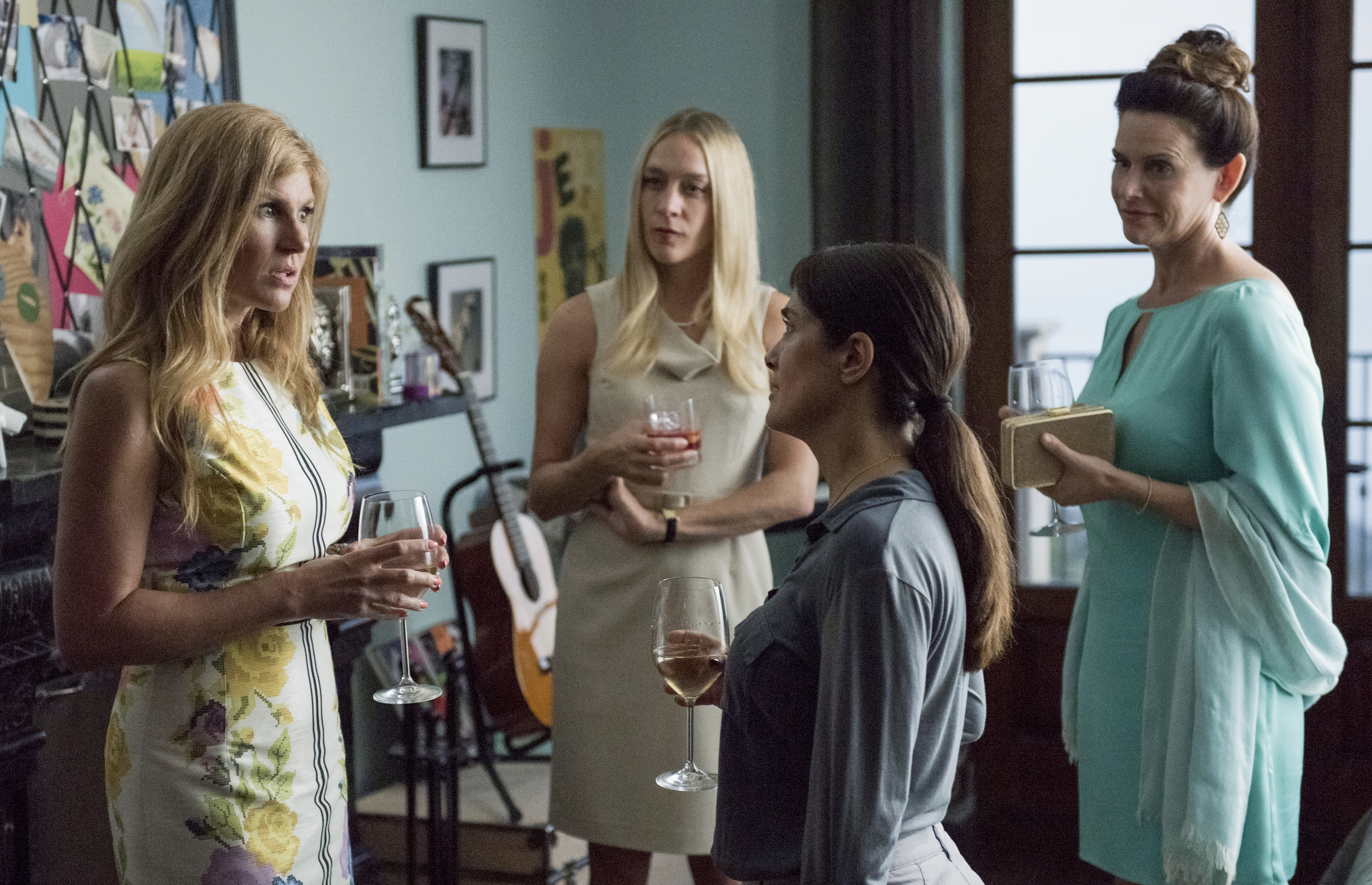In honor of her newfound appointment as the Minister of Health, Janet (Kristin Scott Thomas; Only God Forgives), celebrates by hosting a party. She invites her closest friends including Patricia Clarkson, Bruno Ganz, and Cillian Murphy, along with her husband played by Timothy Spall. What starts off as an innocent night of dinner and drinks erupts into chaos as we learn more about the secrets beneath their posh appearance and the party becomes a night to remember.
The black and white cinematography is adequate, but nothing more. Too often movies without color are automatically praised for their visuals when in reality they are merely passable. Small-scale independent movies like The Party tend to be shot in black and white for practical reasons rather than artistic ones. The choice to remove color hides the flaws of cheap lighting and enables quicker setups which was likely a major factor in director Sally Potter’s decision. The look of the film doesn’t compare to great black and white cinematography seen in movies like The Third Man, but it may not need to. The aesthetic hides the film’s budget limitations and adds to its deliberately cultured appearance that will no doubt ingratiate it to its intended audience.

The dialogue and setup initially feel pretentious. The characters are professors, politicians, and other forms of self-professed intellectuals and the dialogue never lets you forget it. Potter’s script often feels overwritten with needlessly verbose language. The word choice and the pompous way lines are delivered can be highfalutin and grating when the characters are first introduced. Clarkson’s constant eyerolling and dismissive tone are particularly irritating as she judges others under her breath. This snobbish behavior creates a distancing effect that prevents the film from building traction early on. Eventually, the characters become relatable as the plot twists are introduced, but the pompous air makes the first half of this short 77-minute movie feel much longer than desired.
Potter’s film is essentially a chamber play. The story is confined to a few rooms in one setting and the action is dialogue-based which may have been better suited to the stage. The theatrics of the performances would have felt at home and the small scale would be more appropriate. Unlike last year’s Beatriz at Dinner, which had a similar setup, it doesn’t take advantage of its medium. On the big screen, the film struggles through its first half until the melodrama appears. As juicy details are revealed and the characters are forced out of their ivory towers, the film becomes immensely more interesting. Seeing the supposedly refined exteriors shatter when faced with decidedly low-class problems is a welcome, almost cathartic change. Each new piece of information increases the hysteria – and the humor – while Ganz’s new age healer interjects with his own unwanted hippy philosophies to the chagrin of the other partygoers trying to cope with their immediate issues. Potter shows a knack for creating social situations that quickly spiral out of control, it’s just a shame that it takes her so long to get there.

3/5 stars.



